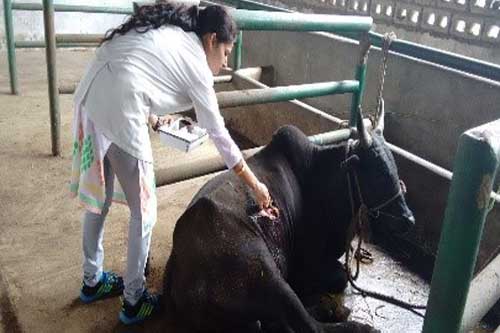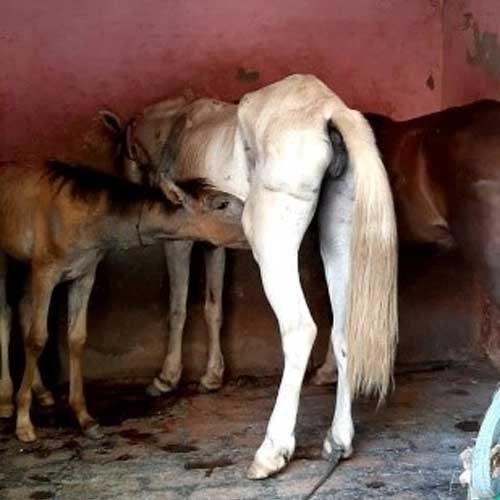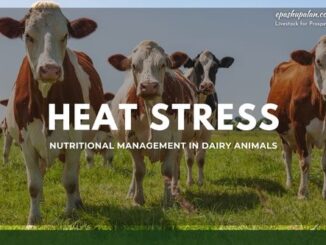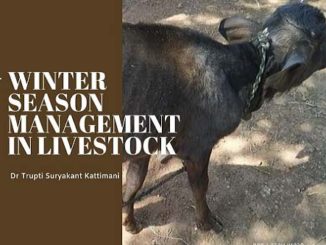Introduction
Ethics is often considered as the rules that distinguish between right and wrong, but it covers far broader issues than those governed by legislation alone. Ethics provide framework within which moral values are thought about. During research, ensuring good ethical practices protects the quality of work done, allows collaborative work built on trust, holds researchers accountable, and protects the subject of the researchers, and thus applying the ethical animal welfare during research is essential in poor communities.
The purpose of animal welfare research is to benefit the species on which the research is conducted known as positive animal experimentation. It is similar to testing medicines and medicinal techniques for human benefit on humans, and is seen as morally acceptable. However, working animals and their improvished owners may be particularly vulnerable to intentional or unintentional exploitation. Since the animal owners and the animals stay in very poor vulnerable conditions, the researchers must investigate and mitigate their suffering. Both of them must not be exploited in the name of research.
Animal welfare research is driven by a desire to improve the lives of animals. Approaches include cataloging their problems, understanding the causes of such problems and instigating interventions to test hypotheses and implement changes.
Animal welfare is a combination of feeling well, functioning well and living well (Natural) i.e. it is the physical and emotional state of the animal. It is influenced by cultural, economical and political factors. Animal welfare is the state of an animal in relation to its ability to cope with its environment.

There are five freedoms that an animal needs.
- Freedom from Hunger and Thirst
- Freedom from pain, injury and disease (Fig.2)

- Freedom from fear and distress
- Freedom from discomfort
- Freedom to display natural behaviour.

Animal welfare is checked by speciesism. Speciesism is the phenomenon where some species are favored over others. Level of alterations given to animals and their ability to feel positive or negative emotions is seen. Animal welfare indicators are examined by sensitivity towards pain, fear and stress. Responses to negative experiences are analyzed in relation to behavioral, physiological and immunological factors i.e. responses to challenges in their environment is surveyed.
A. Behavioural measure of animal welfare
Using an animal’s behaviour is also a very important indicator to assess animal welfare. Anthropomorphism is ascribing human traits, ambitions, emotions or entire behaviour to animals. It is the misinterpretation of animal emotion by humans. Thus animal behaviour and emotions needs an understanding for animal welfare.
Animal behaviour was studied and explained by Nikolaas Tinbergen (1907-1988) that animal behaviour can be understood by 4Q’s for why animals behave in the way they do.
- Cause and Mechanism: What controls the behaviour?
E.g. Why do birds drinks water or feel thirsty?
Cause and mechanism: Birds do a lot of fly (exercise). They don’t sweat but lose water through droppings and through panting due to which the water level decreases and the salt level increases in their body and thus they needs to drink about twice a day. Reduction in the water level and increment in the salt level triggers a hormone cascade which makes the brain signal thirst (Internal stimulus). Sudden noise (external stimulus) can make thirst. - Development: How and when is the behaviour acquired during the animal’s lifetime?
E.g. Animal behaviour change with age: Suckling and teat seeking behaviour that will stop with time or playing with small animals or teaching a dog to sit on command.

- Function: How does this behaviour help the individual survive and reproduce?
E.g. Function (Adaptation): What particular behaviour will keep animal alive. Some play and physical abilities test help animal to escape from predators in life. - Evolution: Why does this behaviour survive in the species?
E.g. Evolution: Pilot whales live in groups called pods so that they can be strong and hunt together and more likely to survive. This allowed the complex grouping behaviour to evolve.
B. Physiological measures of animal welfare
Animal’s Experience:
- Environment/Resources; Sensory input
- Brain evaluates: Emotions/ Learning

- Body responds: Behaviour, Physiology
- Animal adapts and survives – Homeostasis
- Amygdala is responsible for emotional response.
The stress axes mechanism (perceived threat)
Stress Response
- Amygdala perceives danger during fight, fright or flight that sends signals to the hypothalamus’ Sympathetic Adrenal Medullary (SAM) axis which stimulates adrenal gland to release adrenaline that provides energy to work.

- Hippocampus: Cognitive processing- stimulates Hypothalamus Pituitary axis (HPA) enhances cortisol that regulates the body metabolism, reduces inflammation and assists with memory formulation.

Five welfares for all animals
- Nutrition: Appropriate consumption of nutritious foods is a pleasurable experience.
- Environmental: Beningn conditions offer adaptive choices and variety.
- Health: Physically sound (uninjured and disease free) animals enjoy good health.

- Behaviour: Environment focussed and inter animal activities are satisfying and engaging.
- Mental or affective state: Animals experience comfort, pleasure, interest and confidence.

Reducing the welfare challenge
Simple things make a big difference..!
- Enrichment: Dogs are natural scavengers. A bored dog’s welfare can be greatly improved by a simple toy which releases food when they play with it.
Types of Enrichment:
a. Physical enrichment: Bedding material, branch work, burrows, Nesting boxes, Pools, vegetation, substrate.

b. Occupational enrichment: Toys or traffic games.
c. Feeding enrichment: Scattered food, food related activities and devices etc.
d. Sensory enrichment: visual, tactile, smelling stimuli.
e. Cognitive enrichment: For mental challenges, reward for problem solving.
f. Social enrichment: interspecies social stimuli to human animal relationship.

- Exercise: Play behaviour is usually a good indicator of good animal welfare.
- Small changes: Giving dogs opportunity to socialize, or providing cats with places to hide, or creating cheap toys from natural resources. Providing animal with right stimuli and attention it needs will greatly improve welfare.
- Health: always seek a veterinary opinion if you are concerned about your animal health and behaviour.
Conclusions
Ethical consideration in animal welfare research among poor communities is very important. It is the ethical review of our practices that ensures we have fully considered the implications of what we intend to do and that we have weighed up the potential costs and benefits to those involved. Ethical reasoning is even though complex and inaccessible, it must always be seen as mandatory. The assumption that animals are without rights and the illusion that our treatment of them has no moral significance is a positively outrageous example of crudity and barbarity. Universal compassion is the only guarantee of morality.







Be the first to comment